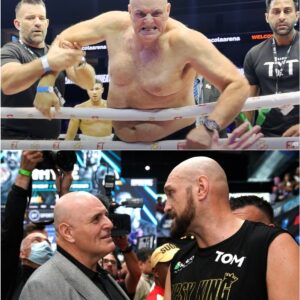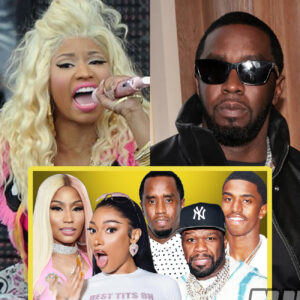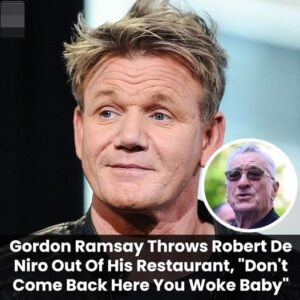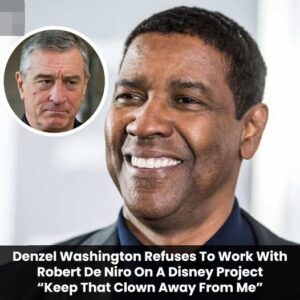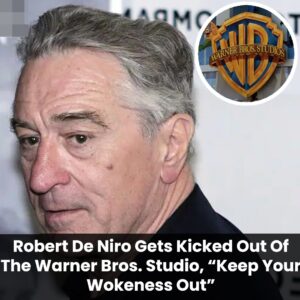In the world of Hollywood, where fame and fortune intertwine with egos and controversies, the departure of an actor from a lucrative franchise can spark a flurry of speculation and intrigue.
Such was the case with Terrence Howard’s exit from the Marvel Cinematic Universe (MCU) following his portrayal of Colonel James “Rhodey” Rhodes, also known as War Machine, in the 2008 blockbuster film “Iron Man.” Howard’s departure, shrouded in rumors and conflicting narratives, offers a glimpse into the complexities of the entertainment industry.

Initially, Howard’s collaboration with Marvel Studios seemed promising. Cast as a pivotal character in the MCU’s inaugural film, he commanded one of the highest salaries among the cast, reportedly surpassing even Robert Downey Jr.’s earnings. However, behind the scenes, tensions brewed, fueled by Howard’s reputation for being difficult to work with and conflicts over creative differences.
Reports from the set of “Iron Man” suggested that Howard’s behavior was causing friction among colleagues, leading to reshoots and edits. Director Jon Favreau reportedly had reservations about Howard’s portrayal of Rhodey, adding to the strain on their working relationship.
As discussions for “Iron Man 2” commenced, Howard found himself at odds with Marvel Studios over contractual matters, ultimately leading to his departure from the franchise.
Howard’s exit from the MCU underscored the delicate balance of power and influence in Hollywood. While some attributed his departure to his challenging demeanor and conflicts with the studio, others speculated about underlying tensions and financial disputes.
Howard himself hinted at feeling slighted by the studio’s decision, particularly in light of Robert Downey Jr.’s substantial earnings from subsequent Marvel films.
The fallout from Howard’s departure reverberated throughout the entertainment industry, raising questions about the treatment of actors and the power dynamics between talent and studios. It also shed light on the challenges faced by actors of color in an industry often criticized for its lack of diversity and inclusivity.
Despite his exit from the MCU, Howard’s career continued to evolve, albeit with its share of highs and lows. From acclaimed performances in films like “Hustle & Flow” to his starring role in the television series “Empire,” Howard’s talent and versatility remained undeniable. However, his departure from the MCU served as a cautionary tale about the complexities of navigating Hollywood’s ever-changing landscape.
In hindsight, Terrence Howard’s departure from the Marvel Cinematic Universe remains a topic of fascination and speculation, offering a glimpse into the intricate web of relationships, negotiations, and power struggles that define the entertainment industry.
As Hollywood continues to grapple with issues of representation and diversity, Howard’s story serves as a reminder of the challenges faced by actors of color in an industry shaped by entrenched norms and biases.
News
Drama in the Ring! Tyson Fury Terminates John Fury’s Role as Trainer After Brutal Upset by Oleksandr Usyk
In a dramatic turn of events, Tyson Fury has decided to terminate his father John Fury’s role as his trainer following a brutal upset by Oleksandr Usyk. The unexpected loss has sent shockwaves through the boxing community and led to…
(VIDEO) Megan Thee Stallion BAITS Nicki Minaj into another rap beef? | 50 Cent DRAGS Diddy’s son Christian
**Christian Combs Disses 50 Cent and 50 Responds: A Clash of Hip-Hop Titans** In the realm of hip-hop, beefs and controversies are almost as common as chart-topping hits. Recently, a new chapter unfolded in the ongoing saga between Christian Combs,…
Breaking: Gordon Ramsay Throws Robert De Niro Out Of His Restaurant, “Don’t Come Back Here You Woke Baby”
In a dramatic and unexpected turn of events, renowned celebrity chef Gordon Ramsay has made headlines by reportedly throwing Academy Award-winning actor Robert De Niro out of his restaurant. The incident, which has sparked widespread media attention and public debate,…
(VIDEO) Joe Rogan & Matthew McConaughey Exposes 7 Actors Hollywood BETRAYED
**Unveiling the Dark Side of Hollywood: The Stories of Matthew McConaughey, Keanu Reeves, and Wesley Snipes** Hollywood, often seen as a dreamland of glitz and glamour, has a hidden underbelly that reveals a starkly different reality for some of its…
Breaking: Denzel Washington Rejects $100 Million Disney Offer to Work with ‘Woke’ Robert De Niro, ‘He’s a Creepy Old Man’
In a recent turn of events that has left Hollywood in a state of shock and contemplation, Denzel Washington, a figure synonymous with integrity and talent in the film industry, has made headlines by rejecting a colossal $100 million offer…
Breaking: Robert De Niro Gets Kicked Out Of The Warner Bros. Studio, “Keep Your Wokeness Out”
In a shocking turn of events that has sent ripples through Hollywood, iconic actor Robert De Niro was reportedly thrown out of Warner Bros. Studios. The reason cited? Spreading his “creepiness.” This incident has sparked intense debate and controversy, leaving…
End of content
No more pages to load
